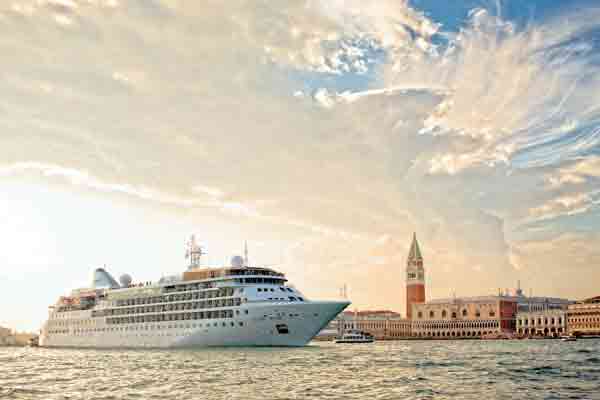Latest News

Silver Wind cruise ship. Photos: Silversea Cruises
With the increasing digitization of the maritime industry, executives from cruise lines are slowly and carefully incorporating Internet of Things (IoT) applications in order to generate returns on investment. Meanwhile, satellite operators are trying to provide that connectivity at affordable rates that will help generate returns for cruise operators. Specifically, Carnival Cruises and Silversea are seeing the incorporation of IoT technology in customer experience-enhancing applications.
Carnival Vice President of Global Connectivity Reza Rasoulian has assembled differing levels of IoT technology and digitization offerings across his company’s fleet. He said that while improving the customer experience seems like a no-brainer decision, generating revenue from these services is a bit more complicated.
“The Return on Investment ROI for experience has been a bit fussy,” he said. “Connectivity is frankly, relatively easy to qualify and monetize. We have multiple Key Performance Indicators (KPIs) we can manage and show the benefits of investing in the space. With IoT on ships specifically, it’s a bit of a softer sell … in general, it still is a significant investment. The ROI and business case has to be there.”
Meanwhile, Silversea Director of IT Infrastructure Erick Hernandez is using connectivity to tailor personalized guest experiences onboard, especially when it comes to culinary decisions. “We’re able to give our passengers a new experience every time,” he said.
There’s no doubt that satellite bandwidth continues to be an expensive piece in the maritime IoT puzzle. But with the quality of the passenger experience on the line, it’s something that should be addressed. Rasoulian sees it as a matter of working with the industry to see what’s best. “We’re cautiously optimistic,” he said. “We’re eager to see what transpires.”
Others see issue in the speed in which the maritime industry reacts to digitization. “The connectivity is there,” Iridium Maritime Vice President and Manager Wouter Deknopper told Rasoulian and others at the SATELLITE 2019 show, but “the pain point that we see is that there’s a slow reaction to the digitization. Older systems have interfaces, but they’re not standardized — all that makes it very challenging to come to a standardized solution. Standardization is something that we, as an industry, need to push forward.”
SES Networks Maritime Segment Vice President Greg Martin believes that things will “really kick off in the IoT world” within two to three years in the maritime space. “We have 5G efforts of standardization that are adding to that — edge computing is adding to that as well,” he said.
With all the talk of the speed and manner of connectivity, Iridium’s Deknopper discussed the company’s anti-ocean pollution initiatives. He first delved into the story of Iridium NEXT, which has been nearly a decade’s effort for the Virginia-based operator. “We have now over 1 million subscribers – we have over 600,000 IoT subscribers over land, maritime, and the government space.”
Deknkopper then highlighted another application to provide return on investment: protecting the maritime environment.
“Plastic pollution is a terrible reality,” he said. “It floats over the oceans and can float for thousands of miles. Our partnership with The Ocean Cleanup is the first attempt to rid the ocean of plastic.” Considering plastic floats with the currents, he stressed how important it is to track these rogue pieces, as “it’s important to have connectivity where it goes.” The company has even created partnerships, so it can use buoys to measure the density of these plastics.
“Next year there will be a redesign and scale up to 60 systems,” Deknopper added. “A lot of these systems will be deployed to the big plastic patches.” The whole system “uses a lot of data but has proven really well to be working in these harsh conditions.”
Regardless of the differing speeds of adoption, IoT is central to both the new offerings from service providers and satellite operators, as well as the business models of cruise line operators.
Get the latest Via Satellite news!
Subscribe Now